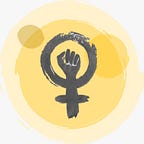Developing GBV programs that are safe and accessible for all women and girls in emergencies
Over the last 18 months, the Violence Prevention and Response Unit at the International Rescue Committee has worked alongside a powerful group of regional civil society networks, women’s rights organizations, community-based organizations, feminists, and activists to cultivate an international coalition dedicated to protecting women and girls from gender based violence (GBV) in emergencies. Through this initiative known as Building Local, Thinking Global (BLTG), organizations and individuals from diverse communities across East Africa, the Middle East, and Asia are united by their shared feminist principles and a commitment to transformative women’s leadership in GBV emergency preparedness and response.
In April, BLTG partners participated in workshops to co-create practical tools and guidance to foster the inclusion of all women and girls within GBV emergency preparedness and response programming.
In two workshops held in Cape Town, 15 BLTG partners from the Middle East and 16 from East Africa came together to discuss, ask questions, and raise awareness about the unique needs, barriers, and risks faced by older women, adolescent girls, women and girls with disabilities, women and girls with diverse ethnic and religious affiliations, and women and girls with diverse sexual orientation and gender identities. Many characteristics of these diverse women and girls’ identities carry stigma in the places they live — sometimes backed up by discriminatory laws and policies — which increases the already complex barriers they face when seeking services and support. However, through the creation of a safe, open and accepting environment, we were able to have honest conversations about traditionally difficult and culturally sensitive topics while learning from a group of individuals from a diverse range of backgrounds, experiences, and viewpoints.
Participants, all of whom are direct service providers and women’s rights leaders in their contexts, emphasized the need for empathy and centering women and girls throughout our programming. In order to do this, BLTG members developed case studies focusing on the intersecting inequalities experienced by diverse women and girls to visualize the real barriers and risks they face daily. Many women and girls in humanitarian settings experience increased risk based on intersecting systems of oppression and discrimination — including race, age, disability, sexual orientation, gender identity, nationality, class, ethnicity and religion — which further reduces their power, choice and protection from GBV, and increases their barriers to accessing services.
With these women and girls in mind, network members conducted their own organizational assessments and began identifying specific actions they could take to make their work more inclusive. During the assessments, participants asked themselves questions around whether their organizations had inclusive policies, if the services they provide are accessible to women and girls from diverse groups, and if staff are trained on rights-based approaches to ensure the equal participation of all women and girls. BLTG members emphasized the importance of addressing their staff’s attitudes and beliefs around diverse women and girls, recognizing the impact this has on how welcoming and accessible their services are for diverse women and girls. Throughout this time, participants were able to share their firsthand knowledge and expertise working to address these issues, acting as a valuable resource and support system for other network members seeking to incorporate more inclusive policies and practices.
In addition to building their own local capacity, BLTG members also played a critical role in co-creating global resources and practice around inclusive GBV programming in emergencies. During the workshop, they evaluated the existing GBV Emergency Preparedness and Response Assessment Toolkit and identified specific revisions to make the needs assessment tools, checklists and data collection methods more inclusive. As a result, the IRC will revise this toolkit in order to ensure that diverse groups of women and girls are not ignored, and their needs are effectively addressed during an emergency. Participants also actively contributed to the development of a guidance note that will include key actions for ensuring inclusivity of services and programming across the pillars of the IRC GBV emergency response program model which will be shared with an international community of GBV service providers.
Through the hard work and contributions of our BLTG network, we will continue to create global guidance and tools grounded in the reality of local contexts while staying true to our feminist principles, recognizing and celebrating women and girls in all their diversity through the process.
A third regional workshop for BLTG network members from Asia will take place in Bangkok this June. As part of the BLTG initiative, workshop participants will be able to apply for small cash awards that directly support their implementation of inclusive actions.
Click here to read a powerful reflection written by BLTG member Angella Asiimwe (Akina Mama wa Afrika, Uganda) where she discusses her experience at the Inclusive GBV Programming in Emergencies workshop.
